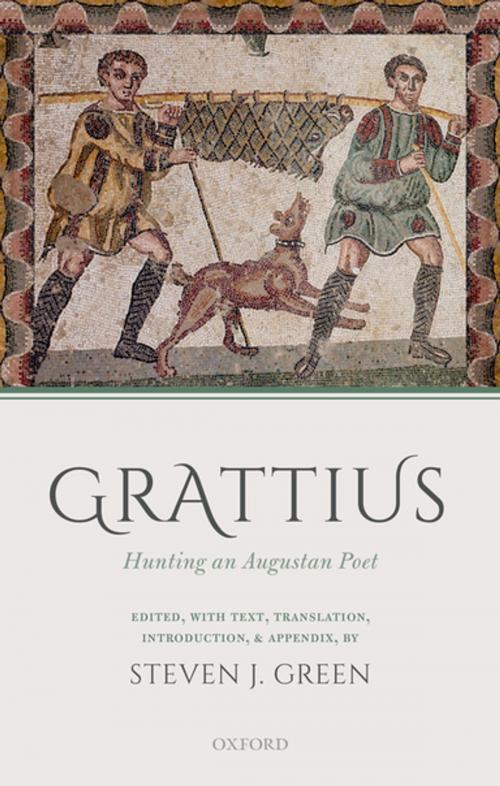Grattius
Hunting an Augustan Poet
Fiction & Literature, Poetry, Literary Theory & Criticism, Nonfiction, History| Author: | ISBN: | 9780191093449 | |
| Publisher: | OUP Oxford | Publication: | March 16, 2018 |
| Imprint: | OUP Oxford | Language: | English |
| Author: | |
| ISBN: | 9780191093449 |
| Publisher: | OUP Oxford |
| Publication: | March 16, 2018 |
| Imprint: | OUP Oxford |
| Language: | English |
Grattius' Cynegetica, a Roman didactic poem on hunting with dogs, is the author's only surviving work, though it reaches us now in an incomplete form. Thanks to a passing reference by Ovid in his Epistulae ex Ponto it can confidently be dated to the Augustan period, and yet while his literary contemporaries have been and continue to be subjects of academic scrutiny, Grattius is seldom read and remains almost completely unappreciated in classical and literary scholarship. This volume is the first book-length study of Grattius in English or any other language and sets out to rehabilitate the neglected poet by making him and his work accessible to a wide audience. Prefaced by an introduction to the poet and his work, as well as the Latin text of Cynegetica and a new English translation, it presents a broad collection of interpretive essays from an international team of scholars. These essays explore the poem within its literary, intellectual, and socio-political contexts and look forward to Grattius' (more charitable) posthumous reception in Europe in the sixteenth to eighteenth centuries. As a whole they aim to reveal his enduring relevance for the tradition of didactic poetry and the study of other Augustan poetry and culture, and to provide an impetus for future discussions.
Grattius' Cynegetica, a Roman didactic poem on hunting with dogs, is the author's only surviving work, though it reaches us now in an incomplete form. Thanks to a passing reference by Ovid in his Epistulae ex Ponto it can confidently be dated to the Augustan period, and yet while his literary contemporaries have been and continue to be subjects of academic scrutiny, Grattius is seldom read and remains almost completely unappreciated in classical and literary scholarship. This volume is the first book-length study of Grattius in English or any other language and sets out to rehabilitate the neglected poet by making him and his work accessible to a wide audience. Prefaced by an introduction to the poet and his work, as well as the Latin text of Cynegetica and a new English translation, it presents a broad collection of interpretive essays from an international team of scholars. These essays explore the poem within its literary, intellectual, and socio-political contexts and look forward to Grattius' (more charitable) posthumous reception in Europe in the sixteenth to eighteenth centuries. As a whole they aim to reveal his enduring relevance for the tradition of didactic poetry and the study of other Augustan poetry and culture, and to provide an impetus for future discussions.















